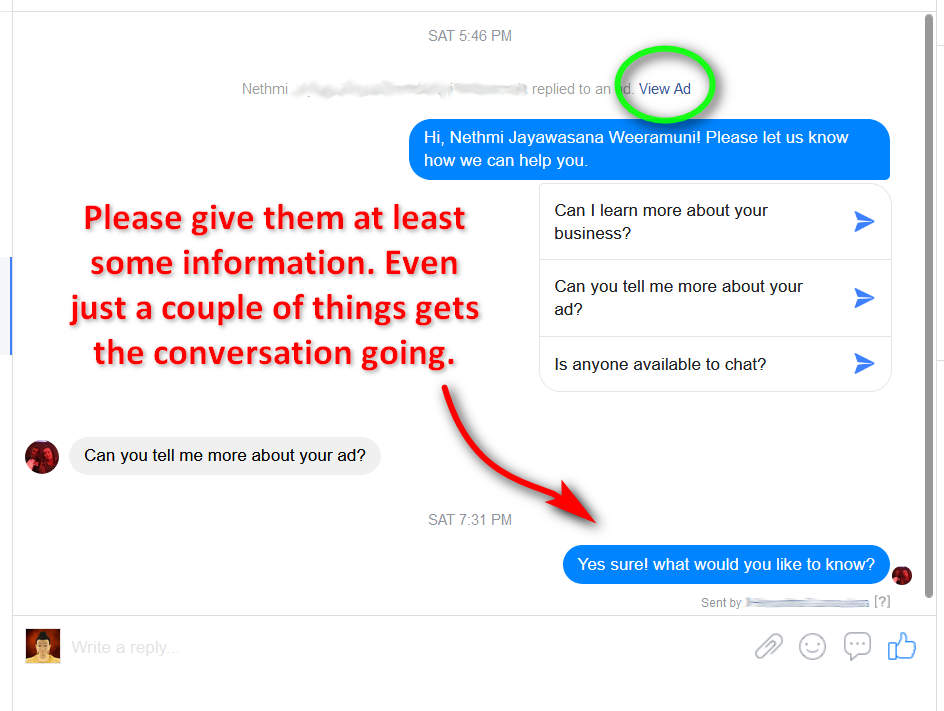What do you need to know?
Responding to Questions

To give excellent service, we have to think no only about giving a correct answer. We have to think about the information the person asking really needs to know.
General guidelines:
- Remember, you are talking to another human being. It can be easy to forget that behind the screen is someone who is interested enough to reach out to us. Remember you are the first representative of Colombo Dhamma Friends. As they say, you don’t get a second chance to make a first impression!
- If a monk contacts us, inform the Bhante immediately.
- If the question is more than asking details about programmes, please ask the Bhantes before answering.
- At the end of every conversation, say “Please let us know if you have any other questions.”
- Don’t say “No problem.” Instead say “You are very welcome.” or “We are happy to help.” Although now a days people say “no problem” it is too informal.
Be Aware of Auto-response Questions
Facebook now gives some choices for people to click to automatically ask about a post or advertisement. For example:
- Can I learn more about your business?
- Can you tell me more about your ad?
- Is anyone available to chat?
Honestly, this is not a good feature on Facebook, but we have to use it. Understand that people are just picking a question even if it may seem strange.
If they ask “Can you tell me more about your ad?” You need to click on the the “View Ad” link at the top to see what event they are asking about. Don’t simply reply with “What would you like to know.” Say something basic like, “The Children’s Dhamma School happens every Saturday. There’s no charge. It’s for children 7 years and older. You can learn more at https://www.serenecolombo.org/childrens-dhamma-school/. Please let us know if you have any other questions.

Examples
Example #1: How often is the poya day?
Upasaka: Namaste, may I enquire how regular is Poya day? Once a year or?
Volunteer: Namo Buddhaya, a poya day generally happens every month.
Upasaka: Thank you! Is the day fixed? For example, the first Sunday of the month or?
Volunteer: Majority of the time the poya day comes after 28 days of the previous (full moon) poya day.
Analysis:
So, the volunteer gave 100% correct information. The poya day does generally happen once a month and it is ususally 28 days after the previous one. That is all true.
But does the upasaka know when the next poya is? No! They just know it is 28 days after the previous one, whenever that was. Lets try again:
Redo #1: How often is the poya day?
Upasaka: Namaste, may I enquire how regular is Poya day? Once a year or?
Volunteer: Namo Buddhaya! The poya happens about once a month. You can see the dates by going to our Poya Programme page here: serenecolombo.org/one-day-english-buddhist-retreat-in-colombo/
We’d love to have you join us. Please let us know if you have any other questions
Analysis:
So in this exchange, the upasaka knows three things:
- Exactly how to find the date of the poya
- They are personally welcome to attend
- Their questions are not a bother and we are happy to help
REMEMBER: If people ask about anything other than basic facts, please consult with the Bhantes before answering.